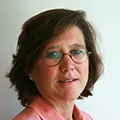Abstract
This paper focuses on an age-old puzzle: why some societies peacefully tolerate high levels of inequality and others do not. We posit that opportunity and mobility over time are as important as current distributions are to the political sustainability of market oriented growth. In addition, we posit that individuals’ subjective assessments of past mobility and their expectations for the future are as important as objective trends. We provide a conceptual framework for exploring objective mobility trends, subjective assessments of those trends, and their interaction with economic and political behavior. We analyze new public opinion data for Latin America. We then report the results of a pilot project in Peru, which compares respondents’ subjective assessments with objective trends during a period of macroeconomic volatility and policy change.
We find that relative incomes matter as much as absolute ones. Expectations for future upward mobility were higher in countries with more inequality. At the same time, upwardly mobile people were more critical in their self assessments than were less mobile people. We also found that social capital was negatively correlated to upward mobility. Collective memory of macroeconomic volatility played an important role in assessments of future prospects under the market: those countries with recent crises and reforms scored highest on our indices of support for market policies. Individuals in countries with the most effective social welfare systems, meanwhile, tended to be less pro-market and to favor redistribution as a means of advancement. Finally, the role of expectations in explaining differences in self assessments among socioeconomic groups has methodological as well as analytical implications for political economy research.
The working papers represent drafts that have been internally reviewed but are not official publications of the Institution.


